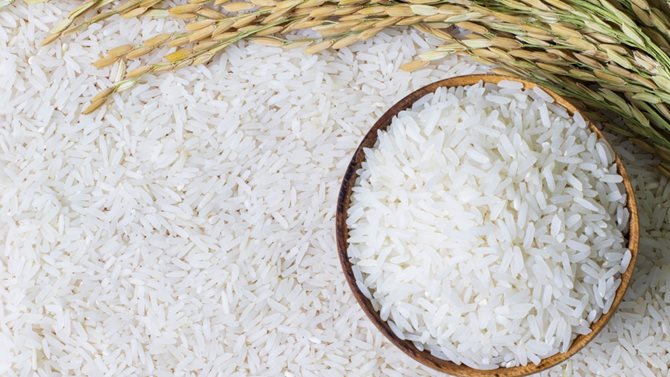A study of the factors controlling the survival, germination and outgrowth of Bacillus cereus in rice

- Project start date: 1 October 2003
- Project status: Completed
- Discipline: Microbiology and food hygiene
- Author/s: Dr Martin Wilkinson, University of Limerick
- Collaborator/s: Single supplier
Research objective
The objective of this project was to develop a rapid, precise, accurate, repeatable, and sensitive flow cytometric method for detecting Bacillus cereus in rice-based foods. This method aimed to identify and enumerate both viable and spore-forming cells of Bacillus cereus. Additionally, the project sought to assess how various processing, storage, and cooking regimes impact the survival and reactivation of Bacillus cereus in these foods.
Outputs
Research report
- Title: PhD thesis available on request and can be accessed through the University of Limerick.
- Date: 1 September 2004
- Summary: The project focused on developing a flow cytometric method for the detection of Bacillus cereus, a pathogen associated with food poisoning in cooked rice and rice-based foods. The method was designed to be rapid, precise, accurate, repeatable, and sensitive, capable of identifying and counting both viable and spore-forming cells of Bacillus cereus. Researchers used this method to evaluate the effects of different processing, storage, and cooking conditions on the survival and reactivation of Bacillus cereus in rice-based foods.
- Findings:
- Method development: A flow cytometric method was successfully developed for detecting and enumerating Bacillus cereus cells, including both viable and spore-forming cells.
- Impact of conditions: The method was used to assess how various processing, storage, and cooking regimes affect the survival and reactivation of Bacillus cereus in rice-based foods.
- Recommendations:
- Implement detection method: Utilise the developed flow cytometric method for detecting Bacillus cereus in rice-based foods.
- Review conditions: Consider the effects of different processing, storage, and cooking conditions on Bacillus cereus survival and reactivation in food safety practices.
Other outputs
Peer reviewed articles
Cronin, U.P. and Wilkinson, M.G., The use of flow cytometry to study the germination of Bacillus cereus endospores. Cytometry A., Mar, 71(3): 143-53, 2007.
Cronin, U.P. and Wilkinson, M.G., Bacillus cereus endospores exhibit a heterogeneous response to heat treatment and low-temperature storage. Food Microbiology, 25: 235–243, 2008.
Cronin, U.P. and Wilkinson, M.G., Monitoring growth phase-related changes in phosphatidylcholine-specific phospholipase C production, adhesion properties and physiology of Bacillus cereus vegetative cells. J Ind Microbiol Biotechnol., 5: 1695–1703, 2008.
Cronin, U.P. and Wilkinson, M.G., Physiological response of Bacillus cereus vegetative cells to simulated food processing treatments. J Food Prot., Nov 71(11): 2168-76, 2008.




